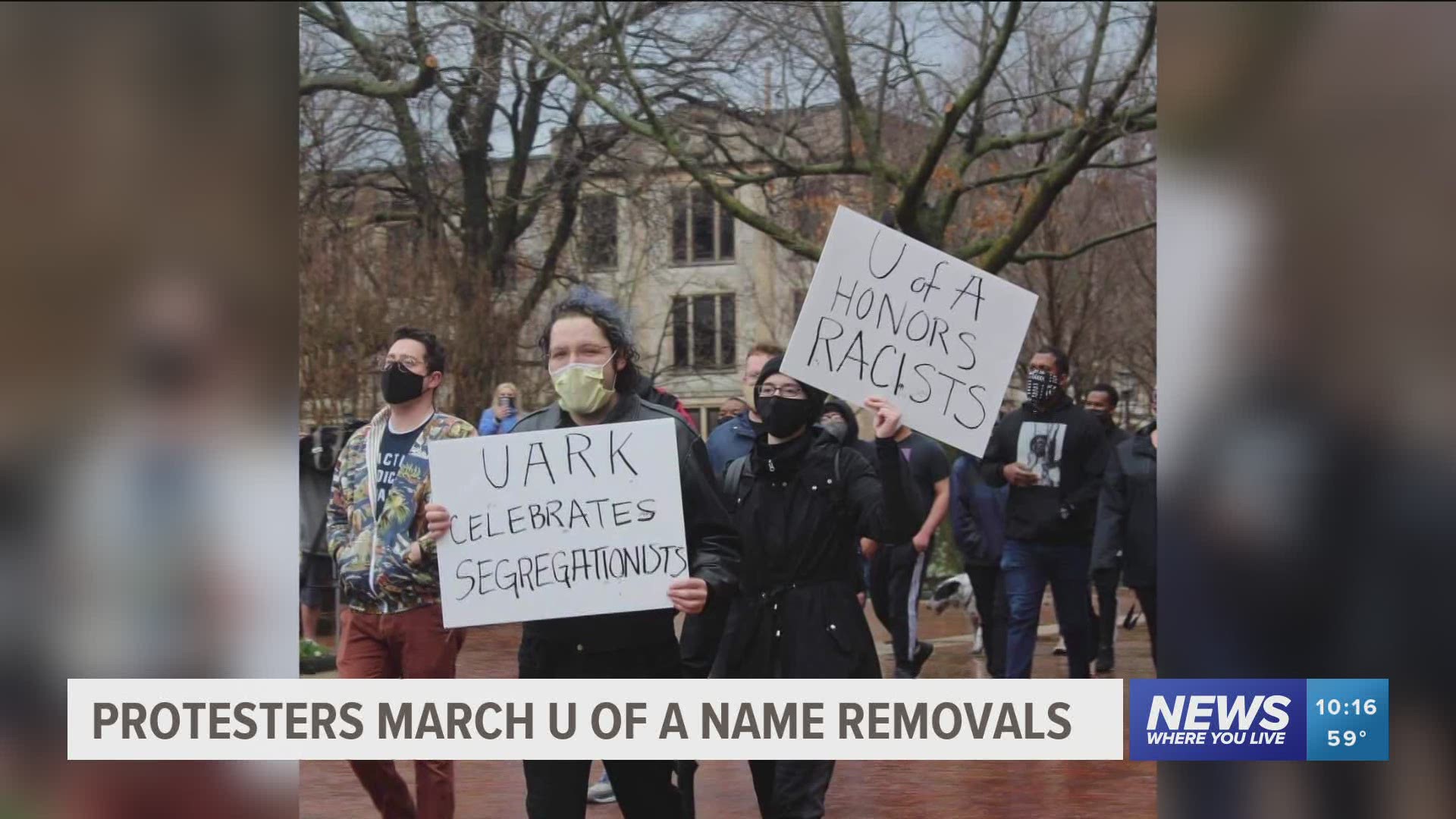FAYETTEVILLE, Ark. — University of Arkansas Chancellor Dr. Joseph Steinmetz supports the move to rename a main dining hall on the campus and relocate a statue of former U.S. Sen. William Fulbright, D-Ark., but opposes renaming the university’s Fulbright College of Art and Sciences.
Earlier this year a university-sanctioned committee reviewed requests to rename Brough Commons, the dining hall, and address the university’s connection to Sen. Fulbright. The committee voted to remove Brough’s name from the dining hall, remove the Fulbright statue from its location outside Old Main, and rename the university’s College of Arts and Sciences.
Brough (pronounced “bruff”) was Arkansas’ 25th governor and served from January 1917 to January 1921. Brough is connected to what is known as the Elaine Massacre in the summer of 1919.
Poor, black sharecroppers in Phillips County had tolerated low wages and terrible work conditions since the end of the Civil War, but after World War I ended they’d had enough. Tensions between blacks and whites simmered throughout the country during the summer of 1919. The disgruntled sharecroppers met late night Sept. 30, 1919, in a church in the small town of Elaine. A group of white men aware of the meeting went to the church. Gunshots were exchanged and a white law officer was killed. The tragic event is considered by some historians to be the worst racial clash in U.S. history that left five whites dead and potentially hundreds of blacks. Brough not only directed federal troops to Elaine but accompanied them when they rounded up and murdered some of the black residents.
In a May 19 letter to University of Arkansas System President Dr. Donald Bobbitt, Steinmetz agreed that Brough should no longer have a place on campus.
“While it is true that under his gubernatorial leadership, Arkansas became the only Southern state to allow women’s suffrage prior to the Nineteenth Amendment – and he publicly supported anti-lynching laws, something rare in the day – his governorship was significantly marred by his actions that led to one of the deadliest racial conflicts in history,” Steinmetz noted.
To read more of this article, please visit our content partner Talk Business & Politics.

